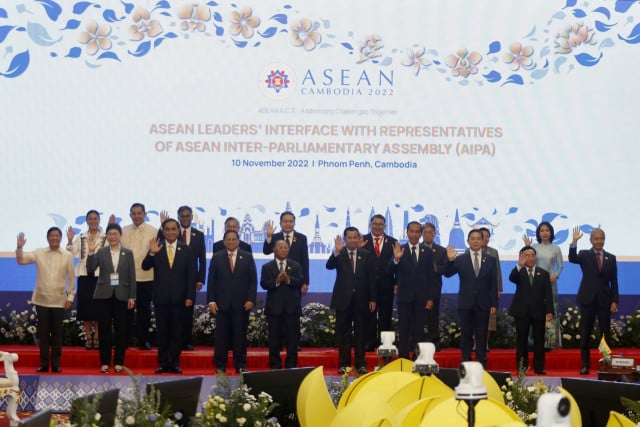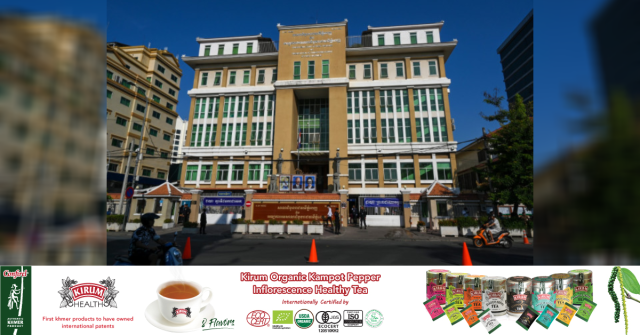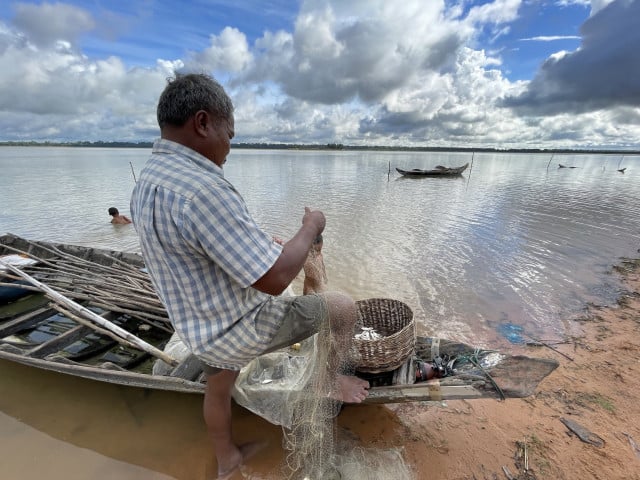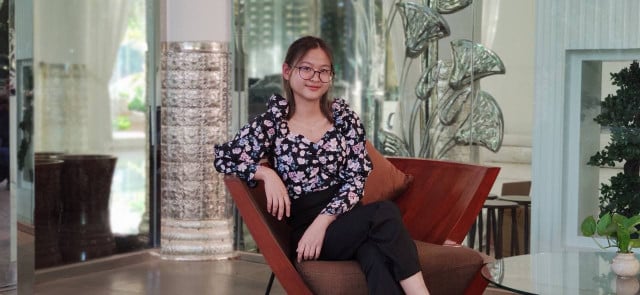Leak Adds Twist to ASEAN’s Myanmar Problem

- By Phoung Vantha
- November 10, 2022 10:12 PM
PHNOM PENH – A senior Foreign Ministry official has warned that resolving the Myanmar crisis will be a long process for ASEAN as leaked documents suggest a push from within the bloc to appease the military regime.
Kung Phoak, Secretary of State at the Ministry of Foreign Affairs, spoke after ASEAN foreign ministers met in Phnom Penh in the wake of revelations about more divisions over the Myanmar crisis.
“The Myanmar crisis is a complicated, difficult problem that needs time to resolve,” he said.
“We want the conflict to end positively as soon as possible. However, because of the complexity, ASEAN has to take a long time looking at the problem.”
Earlier, the human rights NGO Fortify Rights said it had received a leaked ASEAN document from a source close to negotiations between ASEAN member states on the Myanmar crisis.
It said Cambodia, as ASEAN chair, prepared the document after an emergency meeting of ASEAN foreign ministers in Jakarta on Oct 27.
Fortify Rights said the 11-point document included equivocal assessments of the situation in Myanmar and made no mention of the junta’s ongoing coup, its more than 12,000 political prisoners or attacks on the civilian population.
Myanmar junta representatives are barred from ASEAN summits and foreign minister meetings. Fortify Rights acknowledges, at point four in the document, that this policy will remain but “other ministerial meetings shall maintain the status quo,” meaning that junta representatives will be welcomed.
“ASEAN leaders need to get real. The junta is the cause of the crisis in Myanmar, not the solution,” said Patrick Phongsathorn, human rights advocacy specialist at Fortify Rights.
“Efforts like this to appease the junta will only prolong its commission of international crimes, the suffering of the Myanmar people, and the negative impacts of this crisis on the wider region.
“The junta poses a threat to international peace and security and should be treated as such.”
Fortify Rights did not suggest that Cambodia was involved in trying to appease the regime or that it was involved in the leak.
However, it is known that ASEAN was split in its approach to the Myanmar coup. Singapore and Indonesia wanted to expel Myanmar from ASEAN but Cambodia, Thailand and Vietnam favoured a more conciliatory approach.
The decision by Special Envoy Prak Sokhonn to travel to Naypyidaw for talks with the regime was criticised by some, as was Cambodia’s failure to get the regime to live up to its promise to give him access to jailed Myanmar leader Aung San Suu Kyi or to prevent the hanging of anti-junta activists.
Kung Phoak said after the meeting on Nov. 10 that the bloc’s five-point consensus remained the basis to resolve Myanmar’s problems.
It allowed all ASEAN states to help facilitate conversations and negotiation between all parties.
“There will be additional methods to evaluate this when we implement the five-point consensus,” he said.
“There will be clear goals and certain actions to make it easier for everyone to judge and will guarantee the efforts ASEAN has put in.”
He said there had been progress based on an evaluation of the complexity, difficulty and participation of some stakeholders.
He agreed that others have a different evaluation of the performance.
He did not refer to the leaked documents by name but said there were draft documents he had not seen which were related to the ASEAN discussion and negotiating progress.
“Any new or additional ideas were always included in the documents,” he said.
Fortify Rights said the 11-point document was to be discussed by the foreign ministers, with their recommendations to be put to ASEAN leaders at the summit.















